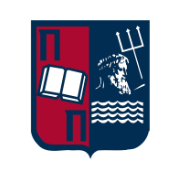Multimedia Communications |
|
|---|---|
| Professors | Ilias Maglogiannis Konstantinos Moutselos |
| Course category | Core |
| Course ID | DS-406 |
| Credits | 5 |
| Lecture hours | 3 hours |
| Lab hours | 2 hours |
| Digital resources | View on Aristarchus (Open e-Class) |
Learning Outcomes
| The course is introducing students in multimedia communication systems and applications. The curriculum includes background knowledge in the areas of design and development of multimedia communication systems (digitizing, encoding, compression, transmission, analysis and mining of multimedia content) and the corresponding Internet technologies for streaming and Quality of Service for real-time multimedia communications. During the course case studies will be presented and there will be project assigned to students.
Students, upon successful completion of the course, will be able to: A) Understand basic methodologies of design and development of multimedia communication and management systems B) Know the stages of creating and editing multimedia content (digitization, editing, coding, compression, transmission, analysis and retrieval of multimedia information) C) Choose the best Internet and streaming technologies and quality of service mechanisms for real-time online multimedia systems D) Analyze problems across different application areas and select the right mechanisms for managing multimedia content E) Evaluate multimedia communication systems |
Course Contents
- Introduction to Multimedia Communications
- Information Theory and Coding Principles
- Image coding: JPEG
- Video Encoding: H.26x
- Video Encoding: MPEG 1-4
- Information Retrieval in Multimedia: MPEG 7, 21
- Multimedia synchronization
- Multicasting
- Multimedia transmission protocols and streamimg Media
- Videoconferencing
- Quality of Service
- Multimedia on mobile networks
- New standards – WebRTC
Recommended Readings
- Gérard G. Medioni, Parag Havaldar Multimedia Systems: Algorithms, Standards, and Industry Practices Course Technology

